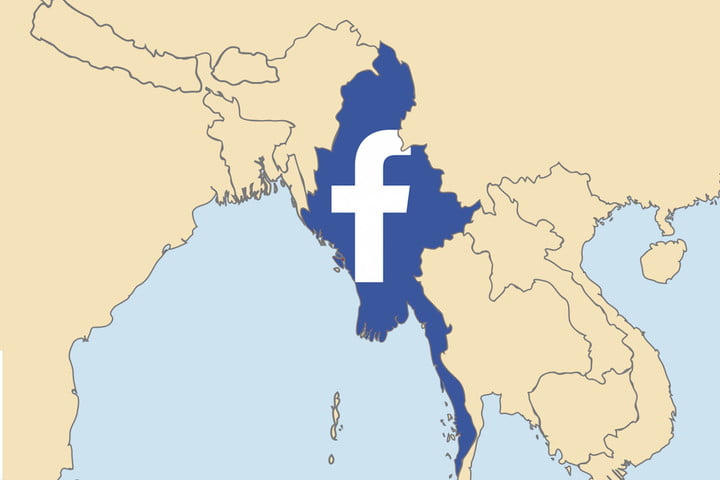Myanmar Fires Back at Zuckerberg
April 6, 2018 | Expert Insights

Civil society groups in Myanmar criticized Facebook’s CEO, Mark Zuckerberg, stating that his response to the spread of hate speech misrepresented the company’s effectiveness at identifying and removing messages encouraging violence in the country.
Background
Myanmar, also known as Burma, is a sovereign nation in Southeast Asia. The country was under British rule after three Anglo-Burmese Wars in the 19th century. In 1948, Myanmar declared independence as a democratic nation. However, in 1962, following a coup d'état, it became a military dictatorship.
The country has seen widespread ethnic conflict and its numerous ethnic groups have been involved in one of the world's longest-running ongoing civil wars. Due to this, the United Nations and several other international bodies have reported constant human rights violations within the country. The country’s military junta was officially dissolved in 2011 following a 2010 general election, and a civilian government was installed.
This move, along Aung San Suu Kyi’s release, improved the country's human rights record and foreign relations and also easing of trade and other economic sanctions. However, criticism of the government's treatment of ethnic minorities, its response to the ethnic insurgency, and religious clashes still continues. In the 2015 election, Aung San Suu Kyi's party won a majority in both houses, but the military remains a powerful force in national politics.s
Rohingya Community
The Rohingya community of Myanmar is an ethnic Muslim minority group that has constantly faced human rights abuses by the Burmese regime. The regime has refused to acknowledge them as Burmese citizens, despite having resided in the country for over three generations. The Rohingya have been denied Burmese citizenship since the enactment of a 1982 citizenship law. In the past, the regime has tried to forcibly expel Rohingya and bring in non-Rohingyas to replace them, which has resulted in the eviction of approximately half of the Rohingya population from Myanmar.
The Rohingya people have been described as "among the world's least wanted" and "one of the world's most persecuted minorities." Since the country’s democratic transition began in 2011, there has been periodic violence against the community with as many as 280 people killed and 140,000 forced to flee from their homes.
Analysis
Myanmar’s civil society groups wrote an open letter to Mark Zuckerberg criticizing Facebook's response to the spread of hate speech, which provoked violence among the alleged genocide of Rohingya Muslims in the country, stating the company's response was "inadequate."
The Center for Social Integrity, the Myanmar Human Rights Education Network and Phandeeyar, a Myanmar-based innovation lab, wrote that Facebook's response has "an over-reliance on third parties, a lack of a proper mechanism for emergency escalation, a reticence to engage local stakeholders around systemic solutions and a lack of transparency."
They added: "The risk of Facebook content sparking open violence is arguably nowhere higher right now than in Myanmar."
Over the last year, approximately 700,000 Rohingya Muslims fled from the country due to ongoing violence against the community. The United Nation's human rights chief suspects that "acts of genocide" took place, with reports signifying a "deliberate attempt by the authorities to destroy evidence of potential international crimes, including possible crimes against humanity."
Local organizations and civil society members exclaimed that Facebook is being used to spread anti-Rohingya sentiment. One analysis showed an increase in hate speeches being spread on the platform since the beginning of the crisis.
Earlier this week, Zuckerberg was questioned about Facebook's role in Myanmar and whether it was helping to spread propaganda contributing to ethnic tension in the region. He responded by saying that issues surrounding Myanmar is very important to the company and showed an example of how Facebook detected "sensational messages" being spread through Facebook Messenger, which later prevented the spreading of the same.
In the letter written by organizations in Myanmar, this example emphasized the flaws in Facebook's approach. "Far from being stopped, [the messages] spread in an unprecedented way, reaching country-wide and causing widespread fear and at least three violent incidents in the process," they wrote. The organizations believe that they were the unspecified "systems" detecting the messages.
Since the incident, Facebook has started to use technology to automatically scan Messenger conversations among users to identify culturally sensitive content. However, it is not clear why the messages the groups referred to were detected sooner by the system. Until now, Facebook has reverted to the organizations about "many of the issues" and suggestions they raised in December 2017 as mentioned in our previous article ‘A genocide.’
Assessment
Our assessment is that the violence against the Rohingya community could result in the extremist point of views and more hostility within Myanmar. Considering that this is an ongoing issue in the country, we believe that Facebook should invest more in the control of its data, especially concerning sensitive ethnic matters. Facebook has been accused of playing a dominant role in how information is accessed and communicated. We feel that the company should be more proactive in engaging local groups and being more transparent about its operations, while focusing on finding solutions.








Comments